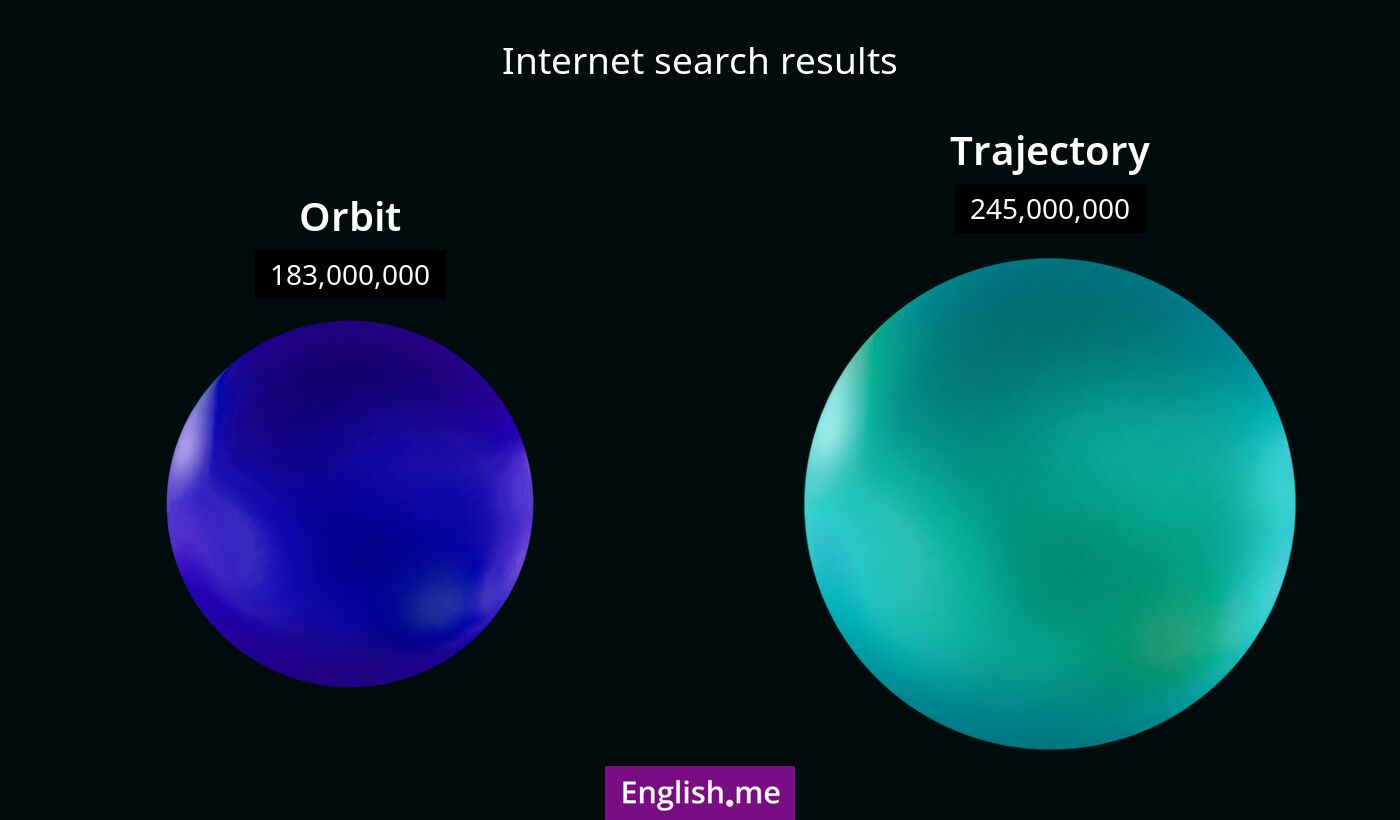"Orbit" vs. "trajectory": mapping the path of words
Reviewed and edited by  Lloyd Cooper 08/10/2024, 13:06
Lloyd Cooper 08/10/2024, 13:06
English.me team member

 What is similar?
What is similar?
Both words relate to the path followed by an object in motion. They are often used in the context of space or physics when describing the movement of objects.
 What is different?
What is different?
Orbit usually refers to a regular, repeating path around a central body, such as a planet orbiting a star. Trajectory refers to the path followed by an object moving through space, which may not necessarily be repeating or circular.
 Which one is more common?
Which one is more common?

 Examples of usage
Examples of usage
Orbit- The satellite was launched into orbit around the Earth.
- The moon takes about 27.3 days to complete one orbit around the Earth.
- The trajectory of the rocket was carefully calculated to reach its destination.
- The basketball followed a high trajectory before entering the hoop.

 English
English español
español française
française italiano
italiano deutsche
deutsche 日本語
日本語 polski
polski česky
česky svenska
svenska Türkçe
Türkçe Nederlands
Nederlands